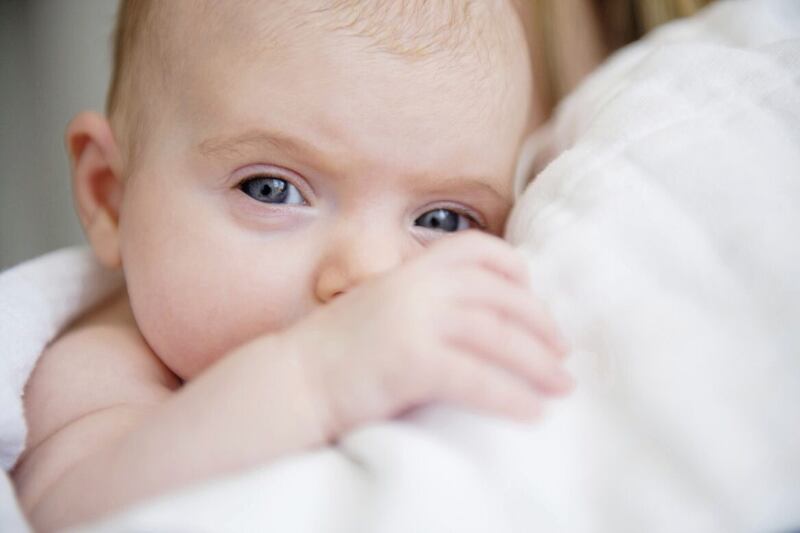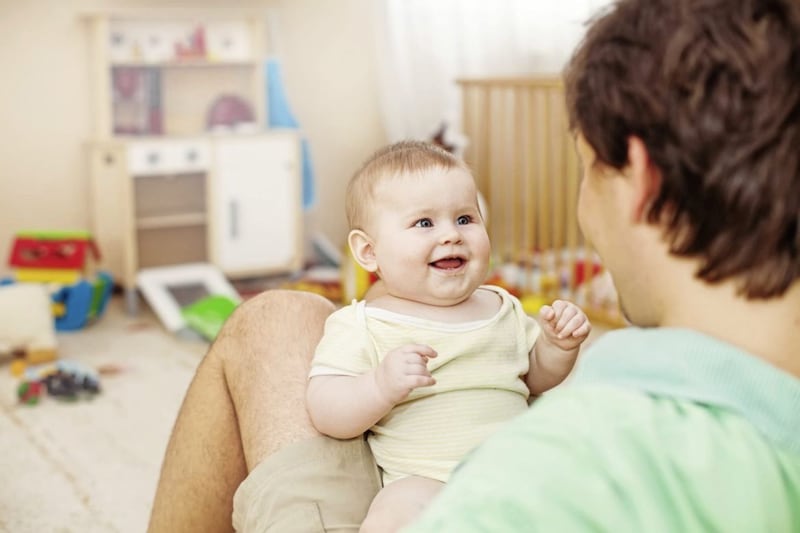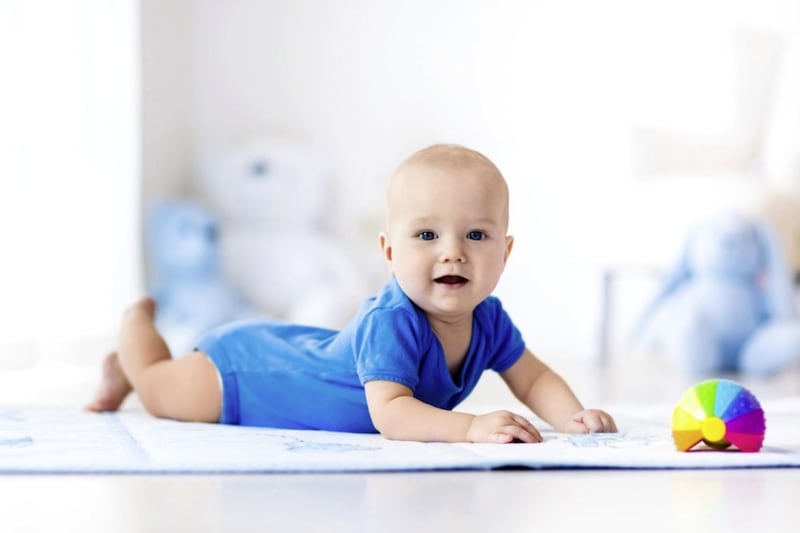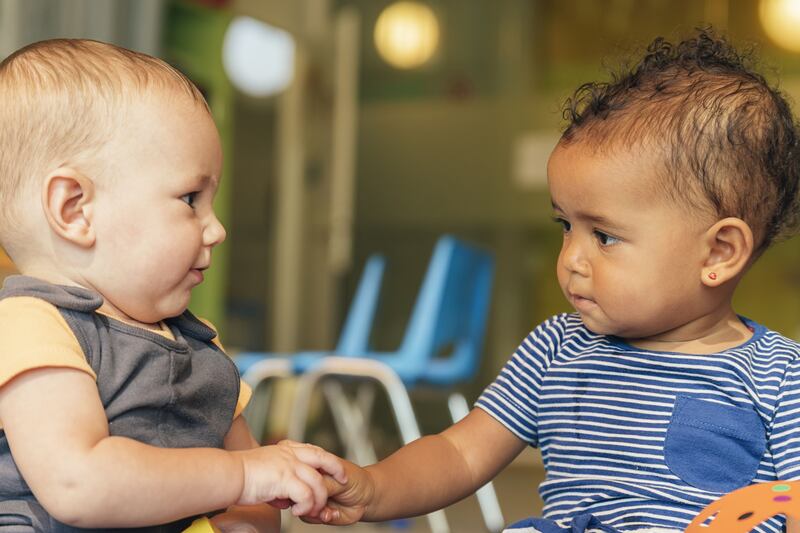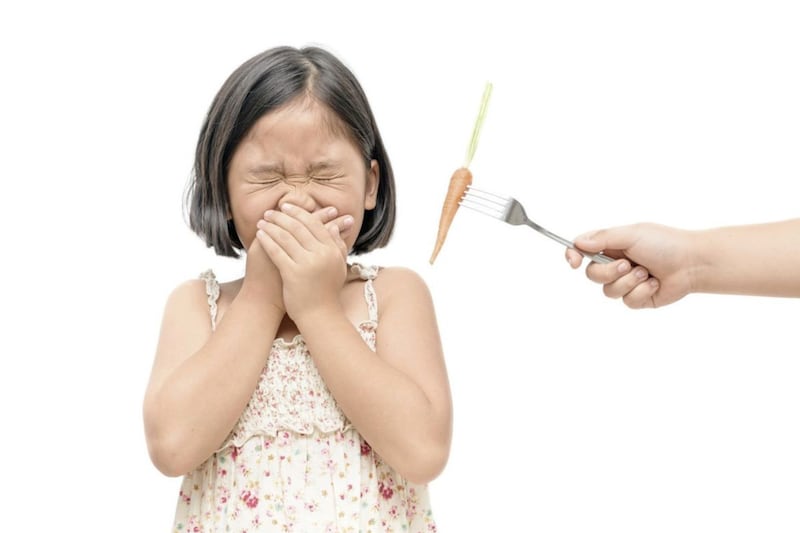BABIES' and toddlers' lives are full of significant milestones and it's hard for their parents to avoid worrying if they don't reach them within expected time frames.
So if a baby doesn't get its first tooth by around six months of age, or start to walk by the time it's about one, some mums and dads can start to fret that their child isn't developing normally – and 10 per cent even feel they've failed as a parent.
And to make matters worse, research suggests 82 per cent of parents compare their child's development against their peers, and one in five make comparisons to friends' little ones on social media.
The Lego Duplo research found dads are likely to spend more time checking their child's progress than mums, while first-time parents spend longer checking on milestones each week.
GP and parenting expert Dr Ellie Cannon says it can be overwhelming for parents if their child isn't doing something by the time they're 'meant to be', but she stresses they should try to remember that the milestones are just guidelines.
"We have recognised milestones for babies that are known to be important – for example, smiling by eight weeks or walking at one year. But with many of these, there's a range – for example, with walking, some babies walk at 10 months and some at 16 months, but either would be considered normal. It's important for parents to realise there's a range.
"Every child develops differently, and at a different pace. Milestones are important, of course, but there's no need to be checking off the things your child should be doing and when. If parents are worried about their child's development, the best thing to do is talk to their GP."
Cannon points out that there are many other milestones parents can celebrate with their children, from gurgling, to building their first tower or correctly naming all the farmyard animals.
"Every child is individual, and their milestones will be too," she points out.
Indeed, the Lego research found 71 per cent of parents believe every milestone a child meets, however small, should be celebrated, with more than half (57 per cent) disagreeing with the idea that only recognised developmental milestones should be celebrated.
As a result, the Lego Duplo Make Your Own Milestones campaign is encouraging mums and dads to do away with competitive parenting and celebrate their child's growth through personalised goals that suit them, including development linked to imagination and creativity – 75 per cent of parents agree role play is of key importance to a child's development, and 40 per cent say they believe imagination and creativity are the most important developmental factors between 18 months and four years of age.
So while the accepted milestones are important, it's also a good idea for parents to note alternative milestones too. Here are examples of both:
ACCEPTED DEVELOPMENTAL MILESTONES
Here are a selection of the milestones suggested on the NHS Birth-to-Five Development Timeline:
:: 4-6 weeks: starts to smile, and respond to the sounds around them.
:: 4-12 weeks: lifts their head – your baby will try to lift their head while lying on their front.
:: 3-5 months: reaches out for objects – your baby will start to reach out for objects as their muscles develop.
:: 4-6 months: starts making new and different sounds.
:: 5 months: can hold objects, lift and suck them.
:: 6 months: starts to eat solids
:: 6-8 months: sits without support
:: 6-9 months: teething starts
:: 6-9 months: starts trying to crawl
:: 6-9 months: can pull themselves upright by using furniture to help them stand.
:: 10-18 months: walks alone
:: 12 months: responds to their own name – your baby can say words like mama and dada.
:: 1.5-4 years: starts to have bladder control – your child may be ready for potty training.
:: 3-4 years: talks well in sentences – your child can chant rhymes and talk clearly enough to be understood.
:: 3-4 years: starts to use a knife and fork and is learning to eat independently
ALTERNATIVE MILESTONES
Alternative milestones are highly individual, whatever age they happen, and might include:
:: Using fine motor skills to open doors on toys or press a button
:: The first time your child shares with you or a friend
:: Role playing alone or with friends
:: Stacking bricks
:: Creating different shapes with materials or bricks, or drawing them.
:: Using organised colour sequences
:: Using the names and correct sounds of animal figures or pictures
:: Saying words like "I," "me," "we," and "you" and some plurals (cars, dogs, cats)
:: Showing affection for friends without prompting
:: Taking turns in games
:: Showing concern for crying friend
:: Dressing and undressing self
:: Saying first name, age, and sex
:: Turning book pages one at a time
:: Pedalling a tricycle
As part of the Make Your Own Milestones campaign, Lego Duplo has created The Other Red Book (lego.com/en-gb/themes/duplo), a physical and digital tool that encourages parents to set and share personalised goals for their children, with tips and activities to aid development, from birth and beyond.




